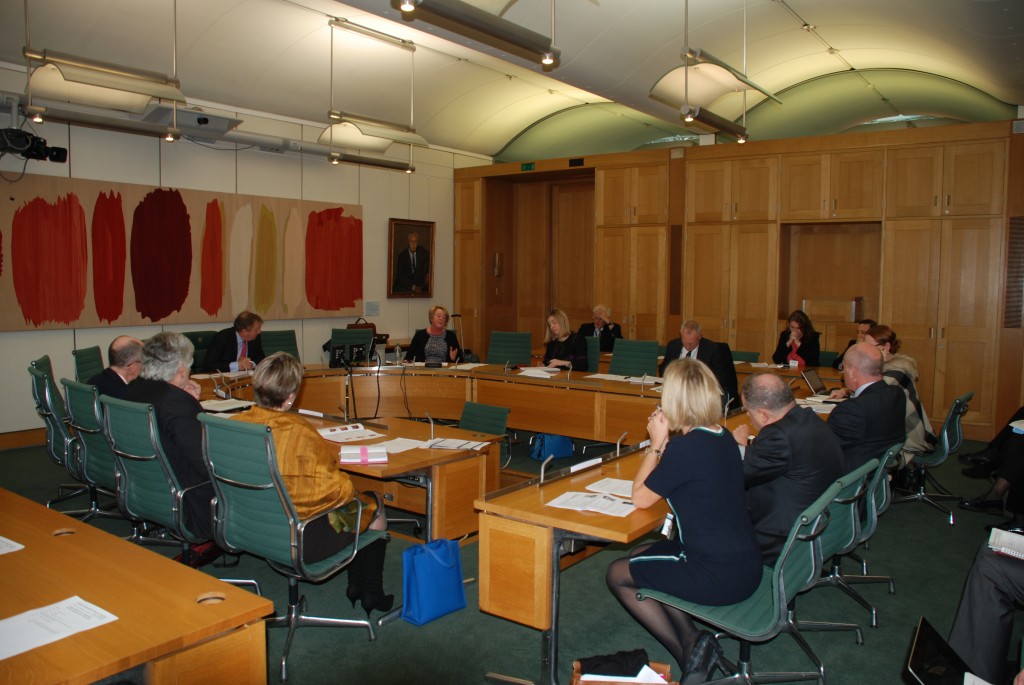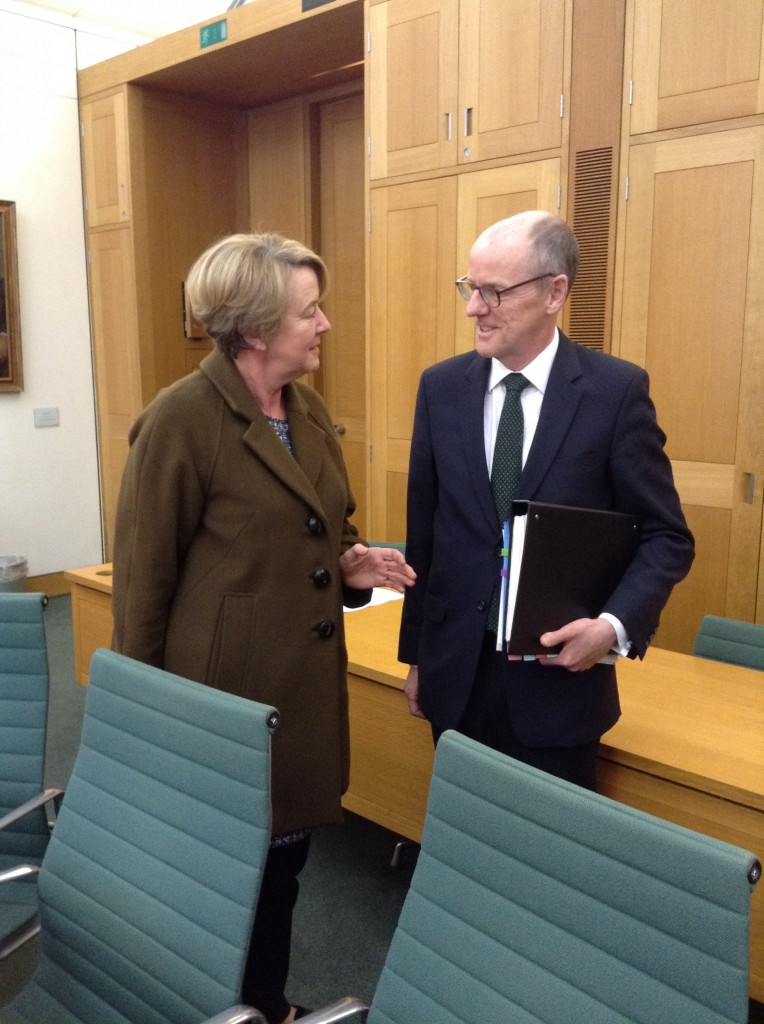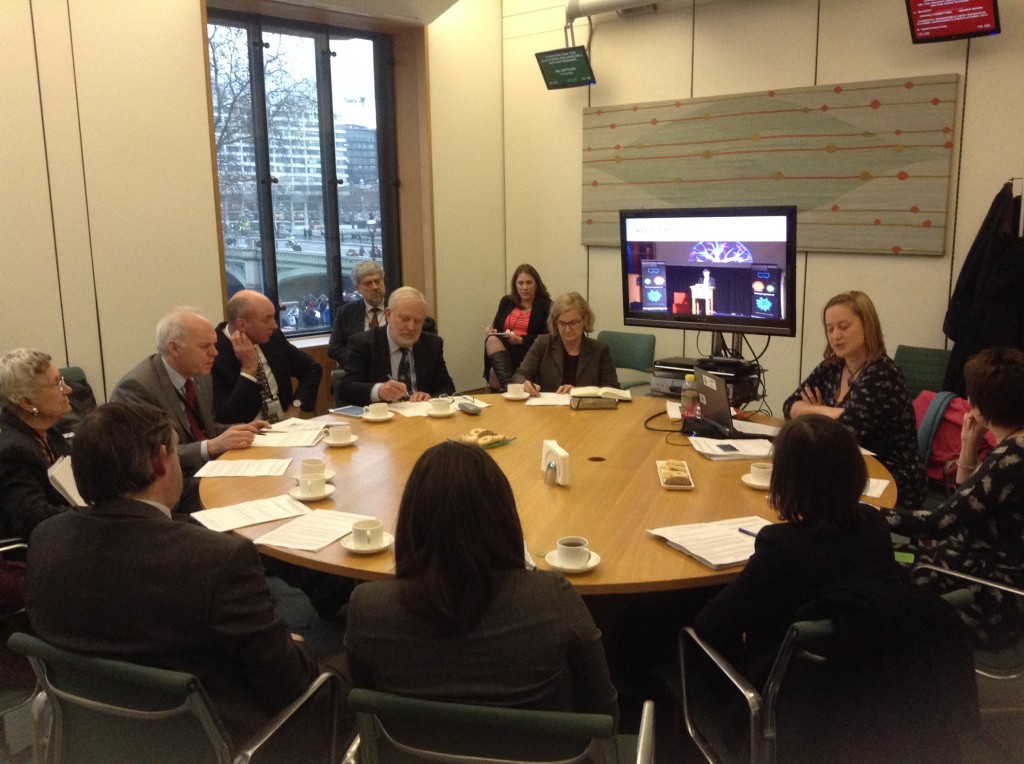In our second meeting of this Parliament, the APPG for Education was delighted to host Nick Gibb MP, Minister of State for Schools, and Dame Vicki Paterson, Executive Headteacher of the Brindishe Schools, a federation of three state primary schools in London, for a discussion on the usefulness of the term ‘coasting schools’.
Vice Chair Danny Kinahan MP introduced the speakers and subject matter before inviting Nick Gibb MP to speak. The Minister explained how ‘academisation’ can be a good way of improving results in schools and that the Education and Adoption Bill would increase the power of the Government to deal with ‘coasting schools’ – those schools which are not necessarily failing on measures of attainment, but are not ensuring that pupils reach their potential. He outlined the definition of coasting schools for both primary and secondary schools, and the process which schools would undergo once defined as coasting.
Dame Vicki Paterson, who has been teaching for 34 years, spoke about her background in education and the challenging schools that she had turned from ‘requiring improvement’ to ‘outstanding’ as a headteacher. She explained that in one school, that would probably now be termed as ‘coasting’, there existed a culture of complacency which had to be tackled. She identified within that school certain ‘ideologies’ that needed to be changed to bring about improvement.
Dame Vicki welcomed the notion of ‘coasting schools’, and said we should be looking at all schools to see how they can improve. She said that it was positive that the coasting schools definition would take into account school performance over three years, and both progress and attainment of students. She concluded that children and their learning must be the focus in any changes to the school system.
Danny Kinahan MP asked Nick Gibb MP to outline the timeline that would be attached to improving coasting schools. Mr Gibb said that there would be no set timeline, and that Regional School Commissioners would be able to assess what they thought was the best approach for individual schools. Andrea Jenkyns MP added that it is important that parents and local school communities were involved in the decisions taken to improve schools.
Dame Vicki Paterson spoke about the importance of having the right resources in classrooms – the right furniture and equipment – in boosting both staff and student morale. Danny Kinahan MP then asked the Minister how many schools were likely to fall under the coasting schools definition. The Minister replied that it was likely to be hundreds.
The meeting was then opened up to questions from the floor. Some of the contributions included a comment from a representative from the Association of School and College Leaders that her organisation was happy that the coasting schools definition would be a separate judgement from that made by Ofsted. She asked what type of intervention would be made for schools which had showed that they could be improved without academisation. Nick Gibb MP replied that a whole range of measures would be available to these schools, and the Regional School Commissioner would lead in deciding which route should be taken.
A representative from Prospects highlighted the risk of people being confused between Ofsted judgements and the definition of coasting schools. The Minister said that both Ofsted and the coasting schools measures would help schools work towards the same aim. Dame Vicki Paterson added that if schools are getting it right for children, they are getting it right for Ofsted.
At the end of the discussion, Danny Kinahan MP was formally elected Chair of the APPG for Education, to replace Nic Dakin MP who becomes a Vice-Chair. In addition, Andrea Jenkyns MP became a Vice-Chair of the Group.



